ROMANIA: “We Invited the Entire Village”
From empathy workshops to suggestion boxes, a rural school in Romania is proving that small changes can spark big transformations in education.
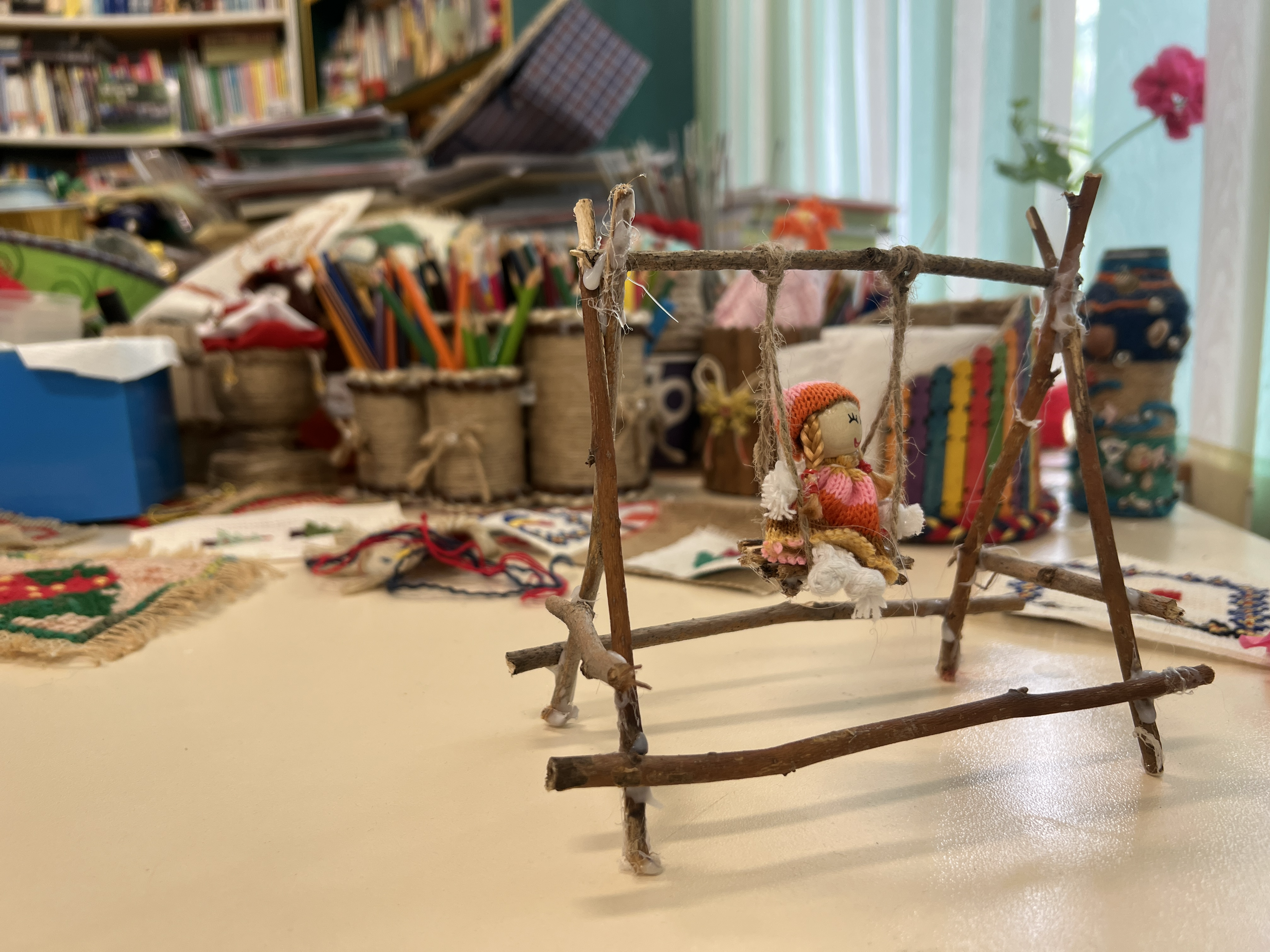
By Veslemøy Maria Svartdal
“He is the big boss,” says school counsellor Alexandra Mihăescu.
“No, I’m the small boss,” laughs headmaster Viforel Dorobanțu of the Școala Gimnazială Nr.1 Curcani.
Between Bucharest and the wide, slow waters of the Danube, lies Curcani, a small railway town about an hour’s drive from Bucharest. Around 60% of its residents are of Roma heritage but have been assimilated into the majority culture. After centuries of prejudice and stigma, many do not acknowledge their roots or teach their children the Romani language.
In 2024, the school in Curcani joined the European Wergeland Centre and Romanian Social Development Fund’s bilateral pilot project, Promoting Inclusion and Quality Education in Romania. The initiative set out to unite local authorities, school staff, and teachers in creating inclusive, safe, and democratic school environments in rural Romania.
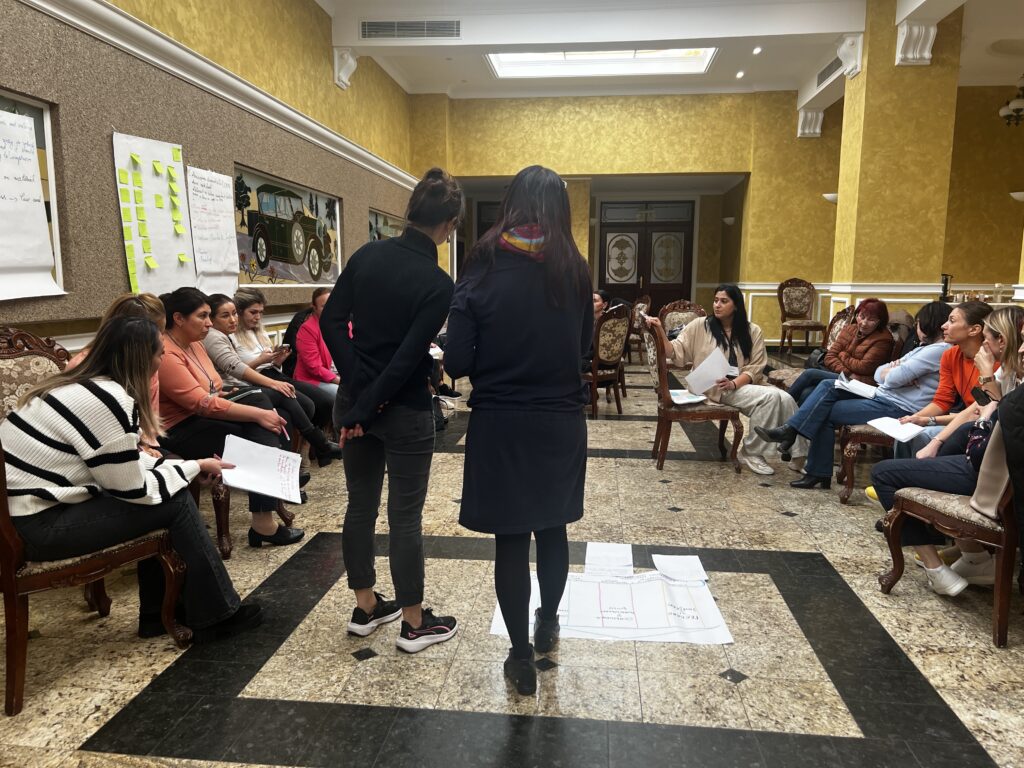
Special attention was afforded the country’s Roma minority, who still is the most vulnerable and rights-deprived population in Europe, according to UNICEF.
In line with the Wergeland vision that education can make or break democracies, the project supported schools in fostering a democratic culture through the Whole School Approach, which invites all students, school staff, parents and the wider community to work together to build safe and inclusive classrooms.
“At last year’s Christmas fair organised by the students, we invited the entire village to take part,” smiles Deputy Headteacher Andreea Mocanu, who took part in a three-day study trip in Oslo to learn more about democratic school governance and the importance of inclusion.
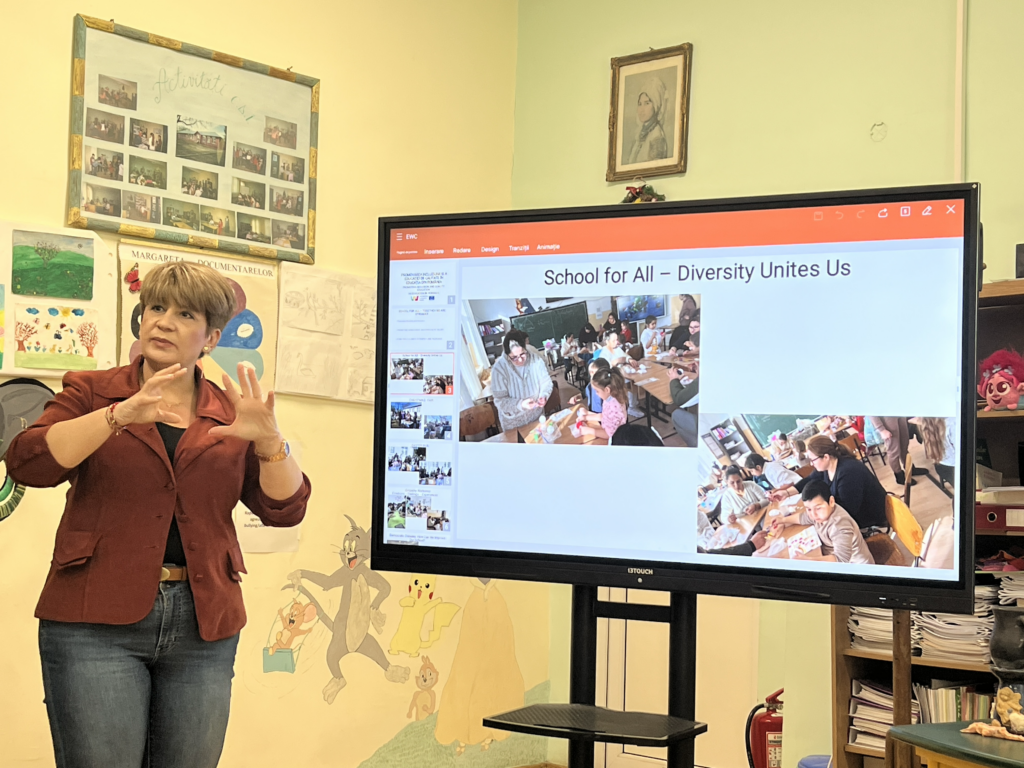
The Christmas fair is just one example of how Curcani has opened its doors. Parents are now frequent guests at the village school. They attend coffee clubs, join creative workshops, and produce seasonal decorations sold at school fairs, with the proceeds going to local charities.
“The teachers also prepared an Empathy workshop where parents were invited to step into the role of teacher for a day, reading example texts for the students. Together we created a roadmap how to build more inclusive school. We asked: “What would an ideal school environment look like?” All students had to contribute, and the design was made by the students themselves,” explains Andreea.
“We all have the responsibility to come up with activities such as these,” says Alexandra.
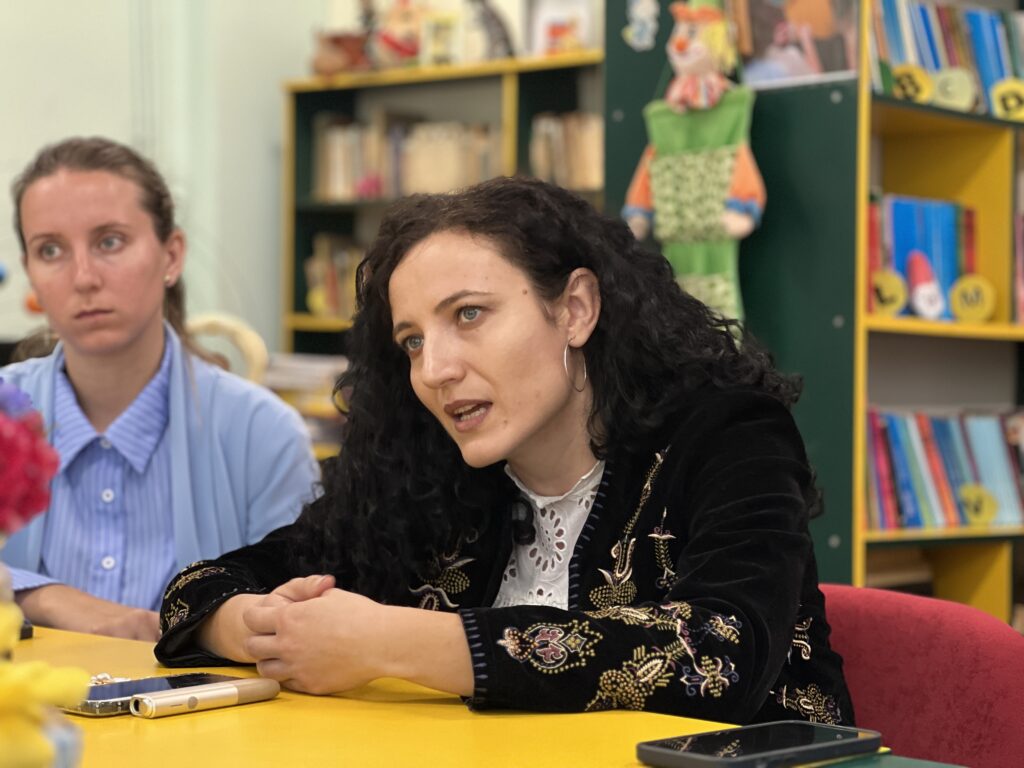
The roadmap for democracy and inclusion is now on display in the library, where most of the workshops also takes place.
The school uses celebrations of important days like Cultural Diversity Day and International Romani Day with interactive activities, presentations, and artistic performances not only to promote tolerance, respect, and openness to diversity, but also to spread awareness about Roma history and encourage Roma students to embrace their repressed identity.
“We teenagers often struggle with social anxiety. That’s why we appreciate all these activities where we can communicate with each other, even though having parents here can be sometimes stressful,” smiles student Erika (15). “We all really liked to learn about Roma history. In my opinion, it was one of my favourite activities. It was very fascinating and inspirational.”
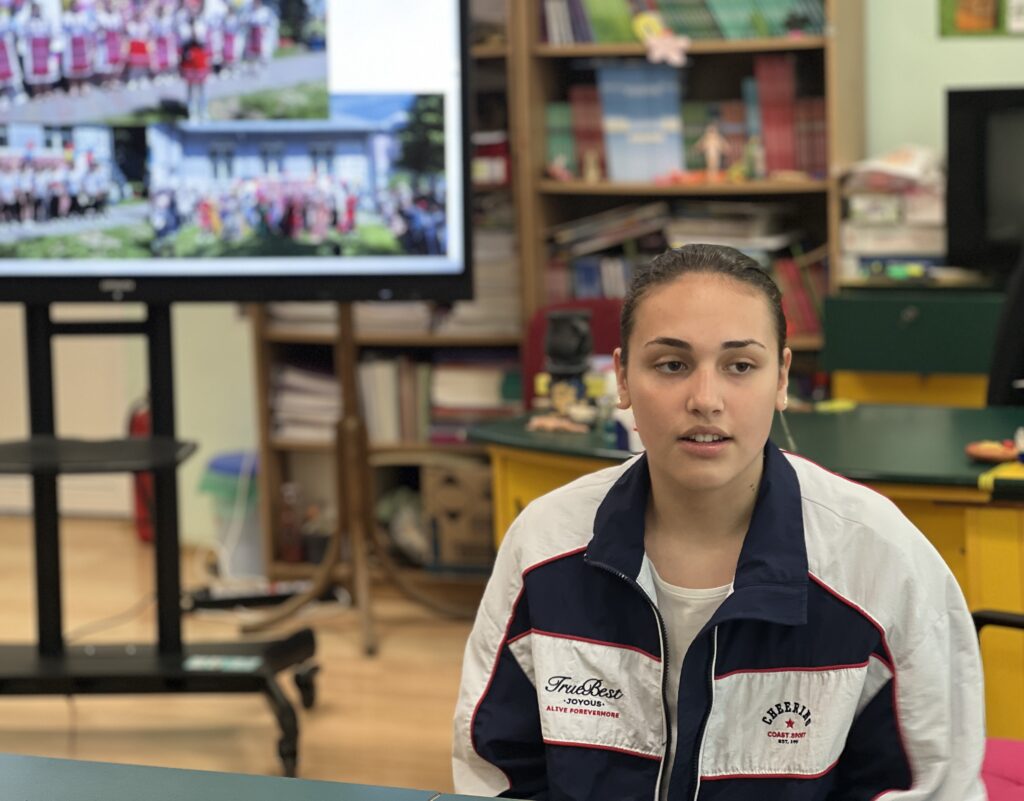
Democracy trainer Mihaela Zatreanu has for a year held training sessions about inclusion, Roma culture and history. She is herself of Roma heritage. The roadmap for democracy and inclusion can be seen behind her.
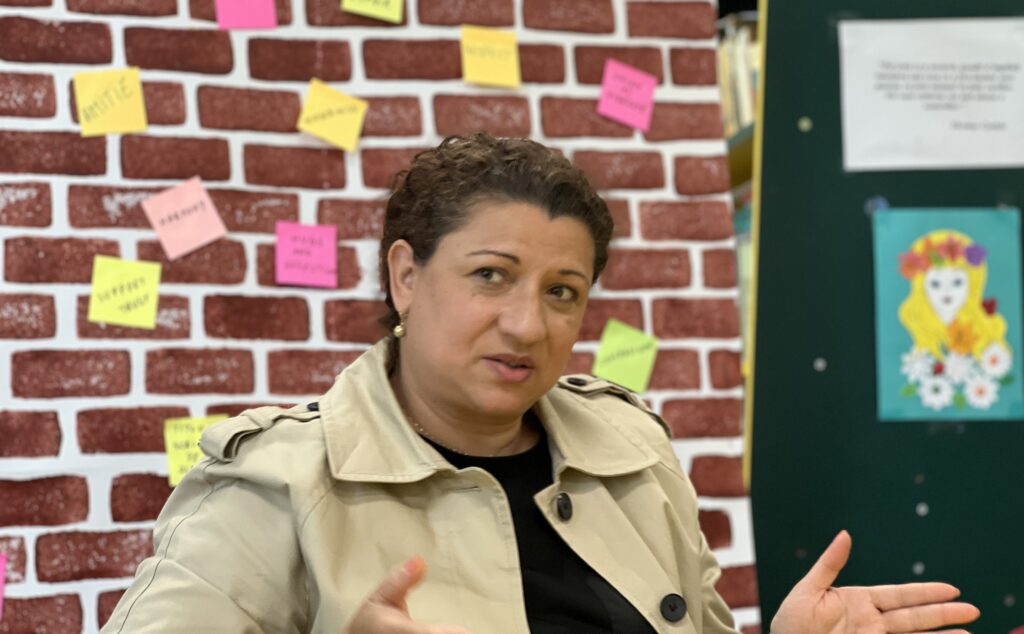
Headmaster Viforel sits back in his chair and smiles as teachers and student explain how the school works with inclusion, and what changes have been made since the school joined the bilateral project in 2024.
“One of our goals is to develop the level of empathy between teachers and students. Teachers see them, but sometimes it is difficult to see the child behind the student,” he says. “The same goes for parents. When we speak to the parents we want to integrate them, and we speak so that they may discover their own children.”
Alexandra explains that after a group of the school’s teachers attended a local training seminar given by the Wergeland Centre, she approached the headmaster with an idea to install a suggestion box, where all school staff could be free to dispose their suggestions on how to improve the school.
“The headmaster accepted it, and we now have such a box,” says Alexandra.
“Even I put something into it!” says headmaster Viforel and laughs.
“I would like a box like that as well,” chimes Erika in.
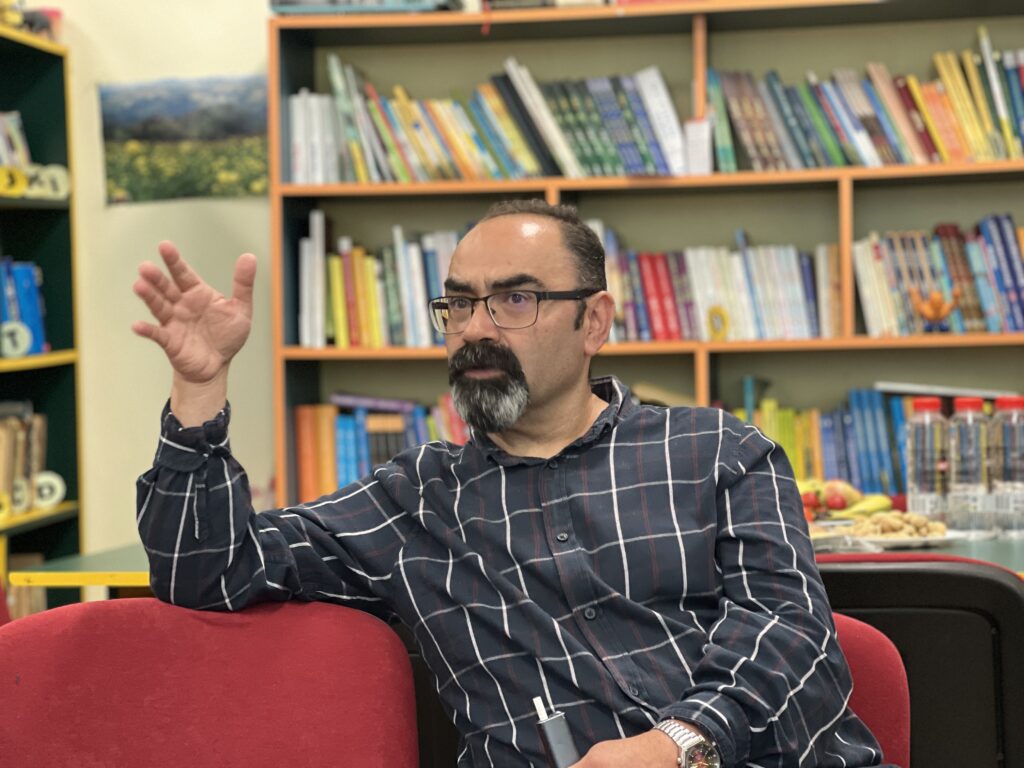
Alexandra reveals that she is already working on such a scheme. She and her colleagues are developing a QR-code that all the students can use to give feedback anonymously to their teachers.
“It was one of my new demands to the headmaster,” Alexandra smiles.
This article is part of our ongoing series: “Change Stories from Romania,” which tells the stories of participants in the “Promoting Inclusion and Quality Education in Romania” pilot project.
Read the rest of the stories in the series:
- Bringing Roma History to the Classroom
- Mayor and School Unite in Rural Romania
- The Children Who Wait at the Gate
The pilot project Promoting Inclusion and Quality Education in Romania ran from 2024 to 2025 and included 30 schools in Calarasi and Suceava. Implemented under the Local Development, Poverty Reduction, and Enhanced Roma Inclusion programme and funded by the EEA Norway Financial Mechanism 2014-2021.